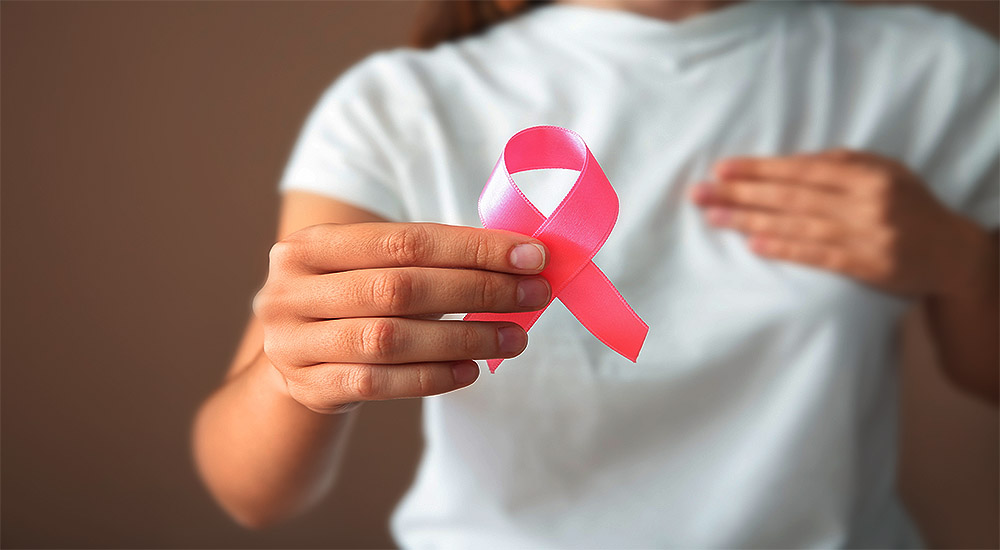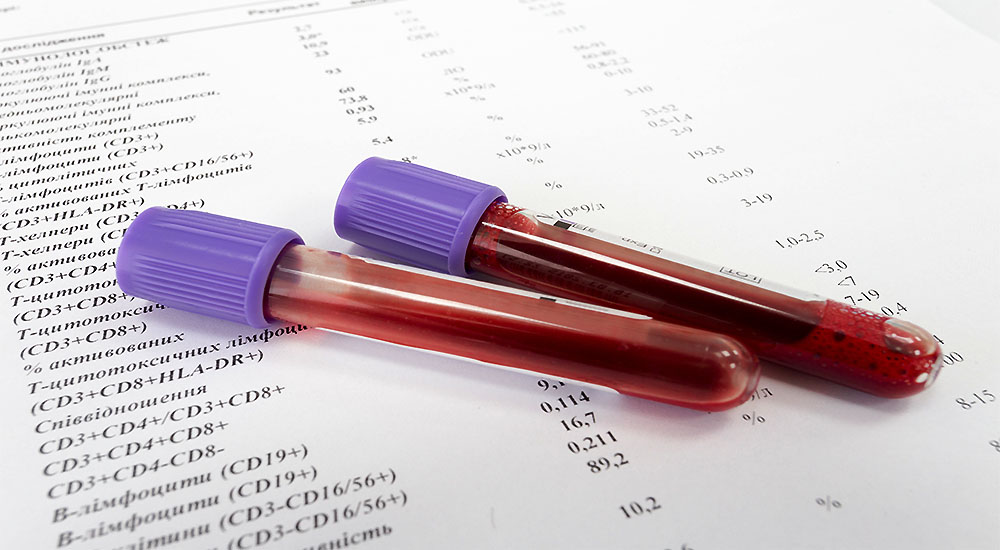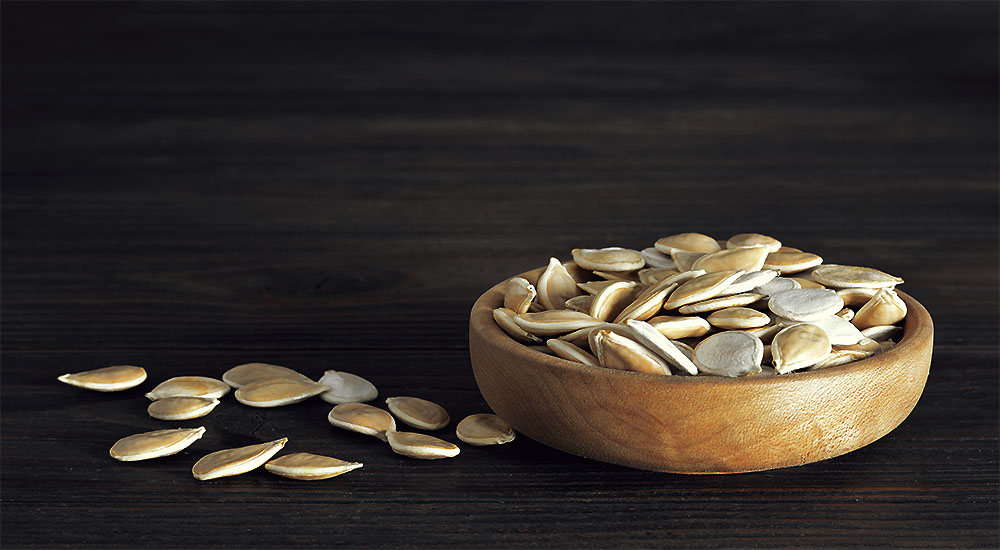Natural Prevention and Solutions for Breast Cancer – Does your diet really matter?

The odds of getting breast cancer are increasing
The statistics are one in eight women will develop invasive breast cancer in her lifetime. Sadly 40,000 women succumb to the disease each year.
What can you do to lessen your odds?
What can you do to increase your survival should you be already diagnosed?
The great news is there is a lot you can do and I want to address diet, lifestyle, and treatment options here.
Does your diet really matter?
There is no argument; your diet absolutely impacts your breast cancer risk.
A truly healthy diet can dramatically reduce your incidence of breast cancer, and improve your odds of beating the disease should you already be diagnosed.
Hormones in the food we eat affect our cancer risk.
Milk and cancer
Our understanding of a hormone called IGF-1, short for insulin-like growth factor 1, is quite vast. IGF-1 is particularly high in cow’s milk and all the products made from such milk.
The hormone is a known carcinogen, related to breast, endometrial, ovarian, uterine, and prostate cancers. IGF-1 is also tied to early puberty and acne for those of you with younger children.
Our dairy cows are typically pregnant when they’re being milked and this leads to very high levels of hormones in their milk.
Milk drinking women die more often from cancer
In a study that followed 100,000 men and women for 20 years, they discovered that milk drinking women had higher rates of death, from both cancer and heart disease than those consuming very little to no dairy products.1
3 glasses of milk per day, or its equivalent in cheese, ice cream, etc, yielded a 2x increase risk of death when compared to those drinking less than 1 glass per day.
Men were not spared; those drinking the most milk also had higher mortality rates.
Milk doesn’t build strong bones
If you’ve ever heard that milk “builds strong bones”, you should know that’s been soundly refuted in many studies, and this one was no different. Those consuming the most dairy had the highest incidence of bone fractures.
This isn’t new news. The industrialized nations consuming the largest amounts of dairy products have the highest risk for osteoporosis.
Avoiding dairy is mandatory, in my opinion.
Saturated fat cuts survival short
A 2011 study followed over 4,000 with diagnosed breast cancer and made the following association for those women whose survival was cut short.
The women who consumed the most saturated fat increased their risk of dying by 41%.
The authors concluded that lower intake of saturated and trans fat in the post-diagnosis diet of a woman with breast cancer is associated with improved survival.2
Foods highest in saturated fat?
We tend to think of beef as number one, but the National Cancer Institute rated them for us. Even more than beef, our “friend” dairy, ranked at the top.
- cheese
- pizza
- prepackaged baked goods such as cakes, cookies, and doughnuts
- ice cream
- chicken. Chicken, made the top 5 list of highest in saturated fat, beating out beef. Even skinless and prepared by steaming, chicken is one of the top five foods contributing to our saturated fat intake.
- pork
- beef
If you are going to consume some animal flesh, consider avoiding grilling and frying which forms carcinogenic compounds.
Sugar, your biggest enemy
Sugar is awful and cancer cells absolutely love it.
Eating refined sugar increases your risk of breast cancer as well as increasing your risk of metastasis or spread to other parts of your body.
It’s pro-inflammatory and puts a great deal of stress on your immune system, the exact system you want to strengthen to successfully fight cancer.
High fructose corn syrup is the worst, and studies have focused on highly processed foods and beverages as a strong link to breast cancer spreading.
But the facts are that cancer cells thrive and spread, with diets high in sugar (and high in animal protein).
If you want to starve cancer cells, eat no sugar. [Univ of Texas MD Anderson Cancer Center]
Processed, refined carbohydrates are just as bad
Very similar to the evils of white sugar is processed carbohydrates such as white flour. You want to avoid highly processed foods in general. They spike your blood sugar, raise the inflammatory hormone insulin, and tend to cause you to gain weight. Being overweight is another risk factor for cancer, so sugar, refined carbs, and weight all work against you.
Avoid such things as store-bought bread, crackers, cookies, pizza, and the like.
What about soy?
Some people may react to soy, but the idea that the phytoestrogens in soy may cause cancer seems outdated and disproven. It just doesn’t add up when you look at the populations that consume soy. They tend to have extremely low incidences of breast cancer.
You can read this blog for more data.
To ensure that any soy you consume is organic and therefore not GMO.
Lignans – the cancer fighters no one’s heard of
Lignans are phytonutrients found in plants, and they are highly anti-cancer.
Foods such as vegetables, whole grains (just avoid gluten unless you know you’re truly fine with it), seeds, especially flax seeds, are rich in lignans.
Lignans are found in red wine also, but I’d advise zero alcohol if you have a cancer diagnosis.
Lignans are a type of phytoestrogen that has caused some people to speculate that they might not be a good idea for women with breast cancer. Research has refuted this in much the same manner as it has for soy.
Flaxseeds are a great source
Lignans from flaxseeds cause your body to produce less active forms of estrogen, and are linked to a reduced breast cancer risk.
Adding ground flaxseeds to your diet (about 2-3 tablespoons per day) has been associated with decreased cancer cell growth in breast tissue.
Your body has the ability to perform apoptosis (apO-tOsis), also known as programmed cell death. This is a benefit to you because the cells being programmed to die are those that are damaged and can become cancer cells.
Research has validated that flaxseed sprouts increase apoptosis.
Phytoestrogens in flax suppress tumor growth
Further, the phytoestrogens from flaxseeds seem to suppress breast tumor growth regardless of whether the tumor is estrogen receptor-positive or negative.
Flaxseeds in yet another study were seen to increase the efficacy of the drug Tamoxifen, which is used on estrogen receptor site positive tumors to bind to the estrogen receptors, and thereby blocking cancer cell growth. Flax appears to boost Tamoxifen’s tumor inhibition abilities. This has been seen in human and mice studies.
Flaxseed lignans are also a great prevention tool. A study showed those women who had already been eating lignans had less aggressive tumors.
The researchers did specify using ground flaxseeds over a supplement. And I’d like to add that you should grind them freshly each day or two in a coffee grinder to prevent rancidity. Keep the whole seeds in your refrigerator and just grind what you need.3
Healthy fats are important for hormonal health
Some good ones include olive oil, olives, salmon (wild-caught Pacific or Alaskan), avocados, nuts, and seeds.
The bad ones are saturated fats as we mentioned plus seed and vegetable oils, such as corn oil, sunflower, and safflower oil.
With the concern about saturated fat, I would keep coconut oil to a moderate amount in your diet, if you have a cancer diagnosis.
Two simple lifestyle changes decrease your risk by 50%
One study cited that two modest diet and lifestyle changes could cut your risk of dying in half.
- Eat 5 or more servings of fruits and veggies (I prefer a total of 9, mostly veggies).
- Walking 30 minutes per day, 6 days a week.
Is there a prevention-based diet?
The largest prospective study on diet and cancer in history covered these 5 points:
- Manage your weight – it’s easy to say, but still critical to getting under control to lessen your cancer risk, not to mention the rest of the chronic degenerative diseases you’re trying to avoid.
- Eat more plant foods
- Eat fewer animal foods
- Drink less alcohol
- Breastfeed, as appropriate
You can reduce your risk of not just breast cancer, but endometrial, colorectal, lung, kidney, stomach, mouth, liver, esophagus, and all cancers combined.
How do you score on the Healthy Lifestyle Index?
Young women who score high reduce their odds of getting breast cancer by 50%, but older women can reduce their odds by 80%.
See how you score:
- Exercise
- Shift your diet away from the Standard American diet high in meat, dairy, saturated fat, and sugar and replace it with green and yellow veggies, beans, and fruit.
- Avoid tobacco
- Avoid alcohol – the only caveat may be red wine, rich in a natural aromatase inhibitor. What’s aromatase. It’s an enzyme breast tumor utilize to produce its own estrogen. So inhibiting this enzyme is a great idea. The winning veggies in this category are mushrooms, the winning fruit, you guessed it, grapes. But eating the grapes is a safer idea than wine.
Plants help you win the war against cancer
The recommendation for a strongly plant-based diet is well validated and appears to be very powerful in the fight against cancer. A recent 2018 study was both large and long-term, published in the International Journal of Cancer came to the same conclusion. The results were these:
Women who eat over 5 ½ servings of fruits and vegetables daily have a low risk of breast cancer as compared to those who eat 2 ½ servings or less. This was found to be particularly helpful in strong tumors that are difficult to treat.4
Don’t forget the fiber
The same group of researchers had early found a reduced breast cancer risk with higher fiber intake. This too is data that’s been well researched.
Fiber decreases inflammation, strengthens your immune system, and can literally help to “turn off” bad, disease-causing genes. Fiber also helps your body to rid itself of toxic hormones, lessening the bad estrogen load. Aim for 35 grams per day of fiber.
Americans are estimated to be deficient in fiber 97% of the time, so heeding advice to consume more fiber is a good one.
Of course, fiber is found in those great vegetables, fruits, beans, and seeds that we’ve been discussing.
Top 5 Anti-Cancer Foods
Berries and citrus – the best of the fruits
Dark leafy greens, spinach, kale, crucifers such as broccoli, cauliflower, cabbage, and Brussels sprouts – the best of the veggies
Walnuts, peanuts, pecans – the nuts with the strongest cancer-fighting abilities. Yes, peanuts are actually legumes, but the research puts them in the nut category.
Flaxseeds, chia – the best seeds
Foods rich in vitamin D – animal foods are high in D3 but they have other liabilities; plants are high in D2, which can be converted to D3 in a healthy gut.
Dr. Longo’s Prolon Program
One last dietary piece of advice. If you are fighting breast cancer or have a predisposition, I would strongly recommend the Prolon program created by Dr. Valter Longo, the author of The Longevity Diet.5
I go into great detail about the program in this blog and this blog.
The goal is to have your immune system robust and strong, effective at fighting cancer cells. The Prolon 5 Day program does just that and we utilize it here at Root Cause Medical.
Your environment and lifestyle
I don’t believe in putting stress on things you can’t control, like air pollution, but when it comes to avoiding some chemical exposures known to increase your cancer risk, there are definitely some steps you can take that are fairly easy to do.
- Cook with inert cookware such as stainless steel. Avoid all non-stick pans other than high-quality ceramic.
- Avoid all plastics. Trade you Tupperware containers for the glass alternative. If you drink tea or coffee from a paper cup, make sure you don’t drink from the plastic lid. If you enjoy purchasing coffee or tea from a vendor, consider pouring it into a stainless or glass mug. Find the all-glass or stainless thermos type mugs and avoid the plastic lids. [Note: I have a Corkcicle brand that keeps my warm beverage at a nice temperature for hours. The entire mug is stainless, as is the lip I drink from.] The Environmental Working Group (EWG) has a great website for further tips on reducing toxic exposure.
- Eat organic as much as possible and scrupulously avoid the Dirty Dozen.
- Supplement with a high quality multiple, antioxidant, omega-3, and vitamin D3 supplement, minimally. Tailor-made programs are best, but these are the basics.
- Use cleansers that are “green”. Get laundry detergents, soaps, dishwashing detergents, and cleansers that are low in chemicals. This includes body lotions and cosmetics too. Clean alternatives abound; just go online or visit your favorite natural food store.
- Sleep – try to get the recommended 8 hours. If sleep is eluding you despite setting aside time for it, let me know, we can help get to the root of what’s going on. Your body repairs at rest, so restoring excellent sleep quality is very important.
- Stress– easier said than done to reduce your stress load, but let’s look at your stress hormones and do everything we can to lessen the load on your body.
- Hydrate with good, clean water. Aim for 8 glasses of purified water each day. Green tea is another healthy beverage choice.
- Genetics – if breast cancer runs in your family, you can still take steps to limit your risk. Our nutritional genomics program can test for particular genes that, once supported, can aid you to detoxify as needed.
Treatment Options
Treatment options abound, but if there is any way to avoid chemotherapy and radiation, statistics favor a longer life.
Surgery that can effectively remove the tumor with clean margins is very successful, and if possible, the safest bet to retain an intact immune system.
Regardless of the choice you make, and there are many, it’s key to precede and follow-up treatment with natural methods of boosting and supporting your immune system and genetics.
If you have genetic “snips” that predispose your immune system to be weak, addressing those will be an important part of your treatment regimen.
The immune system is found, in the majority, in your gut. Therefore gut health restoration must be high on your list as well.
We reviewed a healthy diet and some lifestyle choices you can implement above. Making those a daily part of your life will definitely assist you.
The future is bright
One aspect of my job that I love is observing how tough and strong the human body is. It loves to heal and is very adept at it when you remove some of the obstacles getting in its way.
Here at Root Cause, we do not specialize in cancer treatment. We do support your immune system, hormones, gut health, and genetic weaknesses with natural treatment to enhance whatever cancer treatment you elect to follow.
Even if your cancer is caught early and you can have it removed surgically, you still want to follow through with a program to optimize your immune system and overall health. Traditional medicine will not encourage this and I think it’s a terrible mistake.
Your body allowed the cancer cells to “escape notice” once, and that is what we need to address and correct to ensure your future health.
Do you need help with your health?
We have the diagnostic and testing tools, the clinical experience, and a different medical approach to discovering the root cause of why you have the symptoms that are bothering you. As long as you are ready to make some dietary and lifestyle changes, we can help you. We will "hold your hand" through the changes, step by step, to make each step an easy one. We are located in Clearwater, FL, at 1000 S Ft Harrison, at the corner of Ft. Harrison Ave. and Magnolia St. There is plenty of parking space directly accessible from Ft Harrison. If it is not convenient for you to come to Root Cause Medical Clinic, we offer telehealth/telemedicine consultations to residents of certain states. Call us for details.
Contact us for a Consultation – Call 727-335-0400

Dr. Vikki Petersen DC. CCN
Founder of Root Cause Medical Clinic
Certified Functional Medicine Practitioner
Dr Vikki Petersen is a public speaker, author of two books, several eBooks and creates cutting edge content for her YouTube community. Dr Vikki is committed to bringing Root Cause Medicine and its unique approach to restoring health naturally to the world.
Ask a Doctor
Have a health concern you'd like to speak with a doctor about? Or just want clarity on a subject? Ask Us!
Featured Articles
Popular Stories
References:
- Milk intake and risk of mortality and fractures in women and men: cohort studies British Medical Journal 2014; 349 doi: https://doi.org/10.1136/bmj.g6015 (Published 28 October 2014)Cite this as: BMJ 2014;349:g6015
- Breast Cancer Research and Treatment. 2011 Jul;128(1):229-36. doi: 10.1007/s10549-010-1323-z. Epub 2011 Jan 1. Post-diagnosis dietary factors and survival after invasive breast cancer. Beasley JM1 https://www.ncbi.nlm.nih.gov/pubmed/21197569
- https://www.oncologynutrition.org/erfc/healthy-nutrition-now/foods/flaxseeds-and-breast-cancer
- https://www.aicr.org/cancer-research-update/2018/8-22/new-study-links-plenty-of-fruits-veggies-with-reduced-risk-of-certain-breast-cancers.html
- https://keck.usc.edu/fasting-like-diet-turns-the-immune-system-against-cancer/


